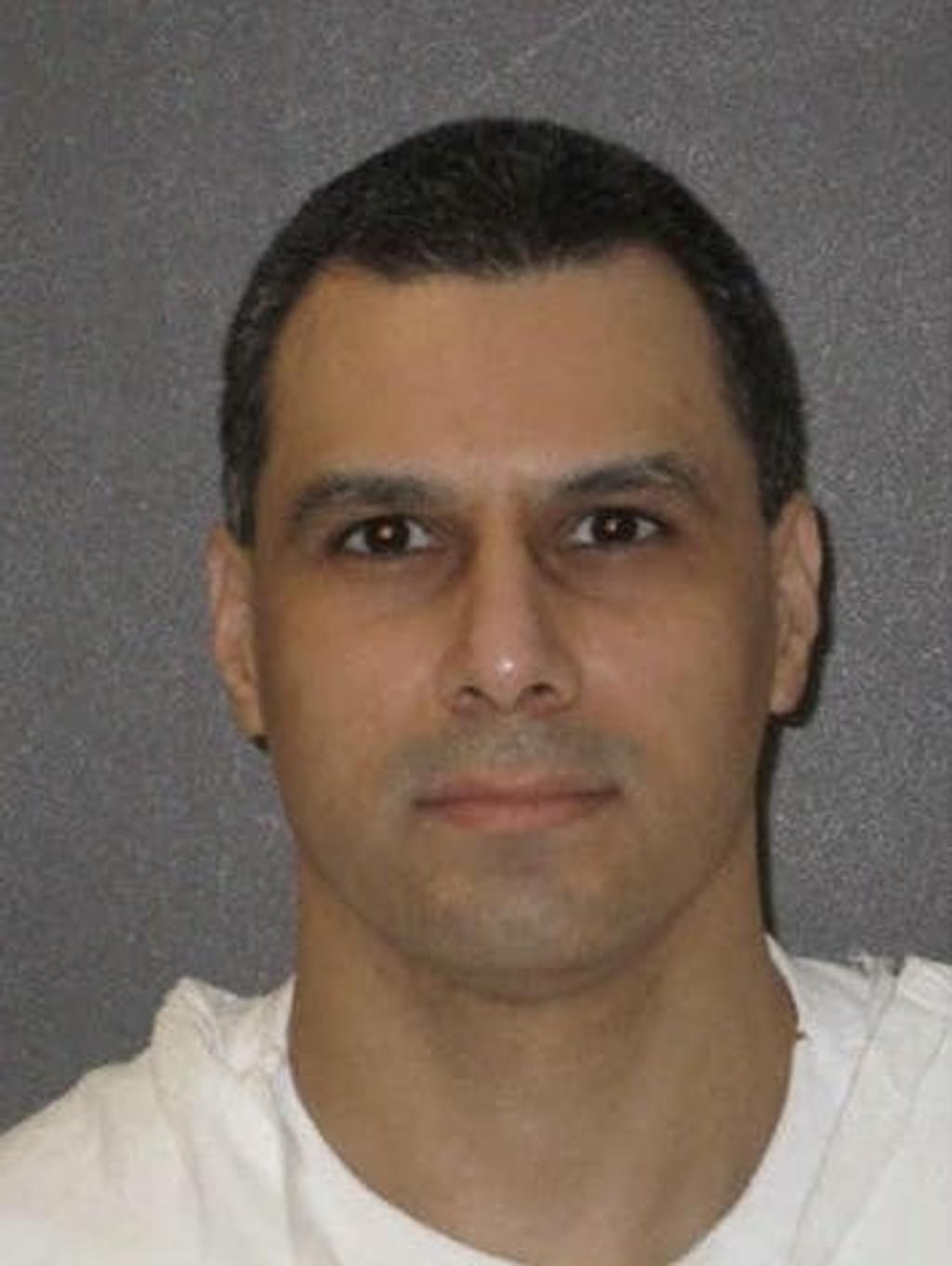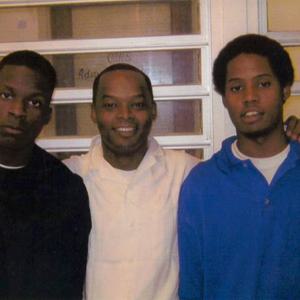
Texas death-row prisoner Ruben Gutierrez (pictured) has asked the Texas state courts to stay his execution because of the COVID-19 pandemic as federal litigation continues on his efforts to obtain DNA testing and to require Texas to permit him to have a chaplain present in the execution chamber if his execution proceeds.
Attorneys for Gutierrez, whose execution is currently scheduled for June 16, 2020, argue that the pandemic has made it impossible for them to perform critical investigation necessary to represent him in pending clemency proceedings and ongoing litigation. They further argue that the explosion of COVID-19 cases in the Texas prisons and in the Huntsville metropolitan area where death-row is located makes an execution a public health risk.
“It would be irresponsible and against the public’s interest to conduct the necessary investigation during this pandemic,” the motion, filed on June 2, states. “Mr. Gutierrez’s team members cannot conduct the work necessary to fulfill their obligation to him without putting themselves and others at risk.”
Gutierrez, who has maintained his innocence throughout his time on death row, also has a civil rights complaint pending before a federal court seeking DNA testing of evidence in his case. On June 4, the federal district court denied the state attorney general’s motion to dismiss the complaint. Gutierrez had alleged that the Texas DNA statute, as interpreted by the state courts, unconstitutionally denies a death-row prisoner testing of “evidence that would demonstrate he is innocent of the death penalty.” He further alleged that the DNA statute is unfairly and unequally applied to those convicted under a provision of Texas law called “the law of parties” that holds an accomplice who did not kill or intend that a killing take place equally culpable for the acts of the killer.
The federal court also allowed a portion of Gutierrez’s complaint to proceed that seeks the presence of a Texas prison chaplain to provide him spiritual assistance in the execution chamber. Texas had previously permitted the presence of one of its own Christian or Muslim chaplains, but changed its policy rather than provide prisoners of other religions to have their own spiritual advisers in the execution chamber. Gutierrez alleges that the change constitutes a governmental “act hostile to religion” in violation of the First Amendment.
Texas courts have already halted six executions since March as a result of the pandemic. In a March 16 order staying the execution of John Hummel, the Texas Court of Criminal Appeals wrote that the stay was necessary because of “the current health crisis and the enormous resources needed to address that emergency.” Concerns that the pandemic had restricted defense efforts to conduct final investigations and clemency efforts also led the Tennessee Supreme Court to stay the execution of Oscar Franklin Smith, which had been scheduled for June 4.
In addition to counsel’s inability to provide Gutierrez with necessary representation, the motion also highlights concerns that coronavirus could impact the execution itself, if it is allowed to proceed. “Executions require many persons functioning in specific roles… [who] are essential to the process,” the motion explains. “If any of these necessary persons are absent—a fact that might not be known until shortly before the execution, and a risk that is significant given the high numbers of cases in the prisons and in Walker County—TDCJ could be unable to carry out Mr. Gutierrez’s execution in accordance with its protocol, or the execution could be botched. Importantly, the Warden of the Huntsville Unit cannot know if he will have all necessary members of the specially trained execution team until the day or moment of the execution—between now and then, any one could fall ill or have been exposed to the virus.”
The motion describes the Huntsville Unit, where the execution is set to occur, as a “hotspot” for coronavirus infections. The prison reports 137 active and 41 recovered cases of the disease among prisoners, and five active cases among employees. Social distancing would be impossible in the witness rooms, the motion says, “forcing…witnesses to choose between their right to attend and their risk of infecting themselves and others.” As of June 3, 2020, a New York Times analysis found that the Huntsville metropolitan area had the highest per capita rate of new coronavirus cases in the United States, with more than 13 new cases per 1,000 residents over the last two weeks. The Times found that Huntsville’s 15% daily growth rate in COVID-19 cases was the second highest in the nation, with cases doubling every five days. The analysis showed that, since the outbreak began, Huntsville has been the 7th hardest hit metropolitan area in the United States, with more than 18 cases per 1,000 residents.
Gutierrez’s complaint in federal court alleges that DNA testing will prove he is innocent of the murder of Escolastica Harrison. “For more than two decades on Texas’ death row in solitary confinement, Mr. Gutierrez has always maintained that he did not commit this crime,” his lawyer, Shawn Nolan, said in a statement. “There is no physical or forensic evidence connecting Mr. Gutierrez to the crime.” Nolan said Gutierrez’s “wrongful conviction was based solely upon two weak elements: a false confession elicited when police threatened to take Mr. Gutierrez’s children away and threatened his wife, and an unreliable witness [who] claimed to have identified Mr. Gutierrez as being in the area of the crime at the time it was committed.”
DNA evidence from fingernail scrapings, a hair held in the victim’s hand, and blood stains has been preserved, but it has never been tested. Gutierrez says testing could prove that the murder was committed by one of his co-defendants, not by him. Because he has admitted he helped plan to rob the victim, he could still be eligible for the death penalty under Texas’ “law of parties.” However, Gutierrez argues, the fact that he is not the killer could have made the difference between life and death in the jury’s sentencing decision.
Sources
Danielle Haynes, Texas death row inmate seeks stay citing coronavirus pandemic, UPI, June 2, 2020; Five Ways to Monitor the Coronavirus Outbreak in the U.S., The New York Times, data from June 3, 2020.
Read Gutierrez’s Motion for Stay of Execution Owing to COVID-19 Pandemic, the statement from Gutierrez’s attorneys, and the district court opinion.




